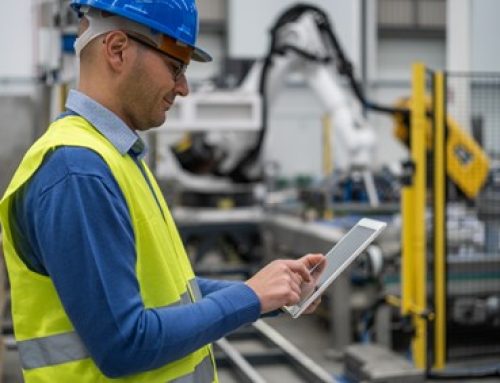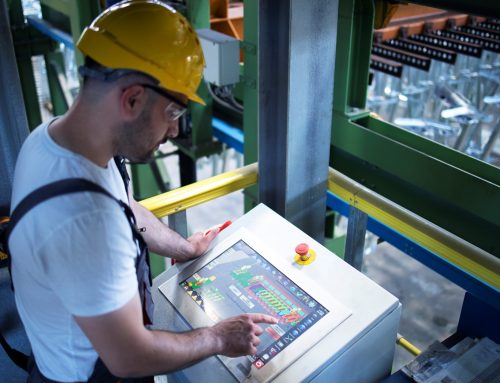Discover how intelligent algorithms can predict and prevent production failures and how to implement them. That’s what you’ll find out in this article!
Did you know that it’s possible to predict and preempt possible failures that could affect your production and revenue? That’s exactly what intelligent algorithms do for you. They are part of the data science field and allow you to analyze the behavior of your assets, identifying patterns that indicate risks or improvement opportunities.
In this post, you’ll learn how intelligent algorithms function, how they integrate with the Internet of Things (IoT), and how they can help you optimize your production. Intrigued? Then keep reading!
What are Intelligent Algorithms?
Algorithms are sequences of instructions that solve a problem or execute a task. They are used in various fields of science, technology, and mathematics. Some examples of algorithms are formulas that calculate the area of a circle, rules that sort a list of numbers, or routines that encrypt a message.
These algorithms use Machine Learning techniques to adapt and improve based on the data they receive. In this way, they can recognize patterns, make predictions, make decisions, and generate insights.
Some examples of intelligent algorithms are those that recommend products on a shopping website, those that recognize faces in photos, or those that play chess against humans.
How do Intelligent Algorithms Relate to the Internet of Things?
The Internet of Things (IoT) is a concept that refers to the connection between physical objects and the internet. These objects can range from sensors, cameras, and wearable devices to industrial machinery, vehicles, and buildings. IoT enables the collection, transmission, and real-time processing of data about the state, performance, and environment of these objects.
The more data intelligent algorithms have, the more efficient and astonishing they become. That’s why IoT is so strategic in this context. These devices can gather data from equipment and systems, and create predictive and prescriptive models.
These models can predict future scenarios and suggest actions to avoid failures, improve efficiency, or increase productivity. For example, an intelligent algorithm can use sensor data from a machine to detect anomalies, diagnose issues, and recommend solutions before the machine stops functioning.
What are the Benefits of Intelligent Algorithms for Production?
Intelligent algorithms can bring various benefits to production, including:
- Cost reduction by decreasing expenditures on maintenance, repairs, and parts replacement—besides optimizing energy consumption, raw materials, and labor.
- Enhanced quality as they ensure desired quality standards in products. They can also swiftly identify defects, errors, or deviations and correct them.
- Increased productivity by adjusting and coordinating machine operations, achieving higher speed, accuracy, and production capacity.
How to Implement Intelligent Algorithms in Your Maintenance Management?
Implementing intelligent algorithms in your maintenance management can be easier than you think. You don’t need to be an expert in data science or programming to leverage the benefits of Artificial Intelligence (AI) and Machine Learning in your production. You just need to follow a few simple steps:
- Define the objectives and performance indicators you aim to achieve with intelligent maintenance.
- Select suitable technologies to collect, transmit, store, and analyze data from your assets. You can use sensors, meters, cameras, or other Internet of Things (IoT) connected devices to monitor real-time conditions and behavior of your machines. These devices also remain connected to the machines.
- Choose software that already has these integrated functionalities, such as artificial intelligence and machine learning, and is capable of adapting to your needs.
An example of software that incorporates AI and machine learning is Manusis4, an asset management platform that revolutionizes how companies manage their operations, offering efficiency, control, and resource maximization. The system uses intelligent algorithms to generate comprehensive reports on the status, behavior, and performance of your machines, using data collected through the Internet of Things (IoT) and digital twin technology.
If you want to learn how to implement intelligent algorithms in your maintenance management with Manusis4, request a demonstration. You’ll be amazed by the possibilities this platform offers for your business!






Leave A Comment